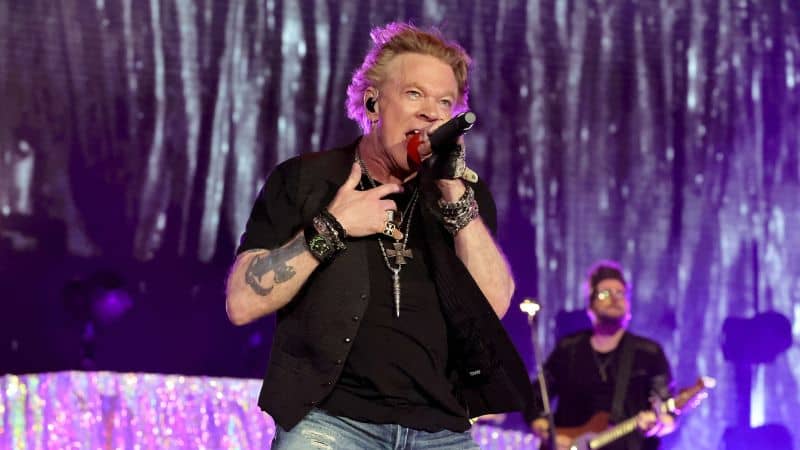Despite earlier claims of a ceasefire, fighting between Azerbaijan and Armenia continued Wednesday, a day after nearly 100 soldiers died in clashes, according to the Azerbaijani and Armenian ministries of defense. Russia
Despite earlier claims of a ceasefire, fighting between Azerbaijan and Armenia continued Wednesday, a day after nearly 100 soldiers died in clashes, according to the Azerbaijani and Armenian ministries of defense.
Russia suggested it had brokered a ceasefire between Armenia and Azerbaijan in a statement Tuesday, but it proved short-lived.
The Russian-mediated ceasefire was “almost immediately broken,” according to US National Security Council coordinator for strategic communications John Kirby.
Armenia’s Ministry of Defense on Wednesday accused Azerbaijan of attacking again, claiming artillery, mortar and “large-caliber firearms” had been fired at three Armenian towns, including Jermuk near the border between the two countries.
In a series of tweets, the ministry insisted that “the entire responsibility” for the current clashes and any future developments falls on Azerbaijan. Armenia’s government said Tuesday that at least 49 Armenian service members had been killed in action.
Azerbaijan, meanwhile, tweeted Wednesday that some of its military units were also being subjected to artillery fire. In a statement, its Ministry of Defense said a criminal case had been opened into the case of two civilians injured as a result of the ongoing conflict with Armenia.
“Two civilians were wounded as a result of a large-scale provocation committed on the night of September 12 by the Armenian armed forces,” the statement read. “The facts are currently being investigated.”
Fifty Azerbaijani servicemen were killed in deadly clashes on Tuesday, the Azerbaijani Ministry of Defense said in a statement. They included 42 members of the Azerbaijan Army and eight members of the State Border Service, it said.

If the fighting between Armenia and Azerbaijan continues, it could place key oil and gas pipelines in jeopardy, exacerbating issues with energy supplies already disrupted by the war in Ukraine, according to Reuters.
For decades, Armenia and Azerbaijan have been engaged in a dispute over the Nagorno-Karabakh region, a landlocked area between Eastern Europe and Western Asia that is populated and was controlled by ethnic Armenians but located in Azerbaijani territory.
The unrest in the region dates back to the collapse of the Soviet Union, when the region, backed by Armenia, declared independence from Azerbaijan. Azerbaijan has long claimed it will retake the territory, which is internationally recognized as Azerbaijani.
In November 2020, renewed fighting broke out in the region for almost two months, killing at least 6,500 people, according to Reuters. Hostilities ended after Armenian-backed separatists agreed to relinquish control over territories in the restive region. Russia helped broker the ceasefire deal between the two countries, which saw President Vladimir Putin send peacekeeping forces along the contact line in Nagorno-Karabakh.
“As far as we know, that peacekeeping presence is still there,” Kirby told reporters Tuesday. When asked if Russia could reposition its troops to Armenia, Kirby said: “We haven’t seen any indication that Russian forces are repositioning now.”
On Tuesday, Armenia called on Russia to implement a 1997 defense treaty that stipulates the countries will defend each other’s territorial integrity and sovereignty in the event of an attack by a foreign country.
“A decision was made to officially apply to the Russian Federation for the implementation of the provisions of the Treaty of Friendship, Cooperation and Mutual Assistance, to the Collective Security Treaty Organization and the UN Security Council regarding the aggression against the sovereign territory of the Republic of Armenia,” a statement from the Armenian Prime Minister’s office read.
The request followed a session with the Armenian Security Council and a call between Armenian Prime Minister Nikol Pashinyan and Putin, according to a statement from Pashinyan’s office.
Just hours after Moscow said it had facilitated a ceasefire between the two nations, US Secretary of State Antony Blinken voiced concern that Russia could try to “stir the pot” between Armenia and Azerbaijan “to create a distraction from Ukraine.”
Kirby said the US was “actively engaged” in trying to help end the violence, adding that Blinken had spoken with both the president of Azerbaijan and the prime minister of Armenia.
“We’re actively engaged with both the Armenian and Azerbaijani Government to see what we can do to end this violence,” Kirby told reporters Tuesday.
Don't Miss
A senior Armenian official said late on Wednesday that a truce had been agreed with Azerbaijan after two days of

A senior Armenian official said late on Wednesday that a truce had been agreed with Azerbaijan after two days of violence linked to a decades-old dispute between the ex-Soviet states over the territory of Nagorno-Karabakh.
There was no word from Azerbaijan about a truce to halt the deadliest exchanges between the countries since 2020.
Russia is the pre-eminent diplomatic force in the region and maintains 2,000 peacekeepers there. Moscow brokered the deal that ended the 2020 fighting – dubbed the second Karabakh war – in which hundreds died.
Russian news agencies quoted Armen Grigoryan, secretary of Armenia’s Security Council, as telling Armenian television: “Thanks to the involvement of the international community, an agreement has been reached on a ceasefire.”
The announcement said the truce had been in effect for several hours. Armenia’s defense ministry had earlier said that shooting in border areas had stopped.
Each side blames the other for the fresh clashes.
Armenian Prime Minister Nikol Pashinyan had previously told parliament that 105 Armenian servicemen had been killed since the violence began this week.
Azerbaijan reported 50 military deaths on the first day of fighting. Reuters was unable to verify the two sides’ accounts.
Grigory Karasin, a senior member of Russia’s upper house of parliament, told the RIA news agency that the truce was clinched largely through Russian diplomatic efforts.
Russian President Vladimir Putin had spoken to Pashinyan, he said. Putin appealed for calm after the violence erupted and other countries called for restraint on both sides.
In his address to parliament, Pashinyan had said his country had appealed to the Moscow-led Collective Security Treaty Organization to help restore its territorial integrity.
“If we say that Azerbaijan has carried out aggression against Armenia, it means that they have managed to establish control over some territories,” Russia’s Tass agency quoted him as saying.
Armenia and Azerbaijan have been fighting for decades over Nagorno-Karabakh, a mountainous enclave recognised as part of Azerbaijan while being home to a large Armenian population.
Fighting first erupted toward the end of Soviet rule, and Armenian forces took control of large swathes of territory in and around it in the early 1990s. Azerbaijan, backed by Turkey, largely retook those territories over six weeks in 2020.
Skirmishes have since erupted periodically despite meetings between Pashinyan and Azerbaijani President Ilham Aliyev aimed at clinching a comprehensive peace settlement.
Domestic unhappiness in Armenia about the 2020 defeat has prompted repeated protests against Pashinyan, who dismissed reports he had signed a deal with Baku.
In a Facebook post, he blamed the reports on “informational sabotage directed by unfriendly forces”.
A full-fledged conflict would risk dragging in Russia and Turkey, and destabilize an important corridor for oil and gas pipelines just as war in Ukraine disrupts energy supplies.
Armenian Deputy Foreign Minister Paruyr Hovhannisyan said the clashes could escalate into a war – a second major armed conflict in the former Soviet Union while Russia’s military is focused on Ukraine.
Azerbaijan accused Armenia, which is in a military alliance with Moscow and home to a Russian military base, of shelling its army units.
Baku said Azerbaijani Foreign Minister Jeyhun Bayramov had met US State Department Caucasus adviser Philip Reeker, telling him Armenia must withdraw from Azeri territory.
US Secretary of State Antony Blinken on Tuesday said Russia could either “stir the pot” or use its influence to help “calm the waters”.
French Foreign Minister Catherine Colonna, in a call with her counterparts from both countries, also called for the “end of strikes against Armenian territory”.
Don't Miss
CNN — Axl Rose is ending a 30-year Guns N’ Roses tradition. The band’s frontman recently posted a note saying
CNN — Novak Djokovic cruised through to the US Open final after a dominant 6-3 6-2 7-6 (7-4) win against
Chris Kirk speaks to CNN after first PGA Tour win in 8 years American golfer Chris Kirk had won four







